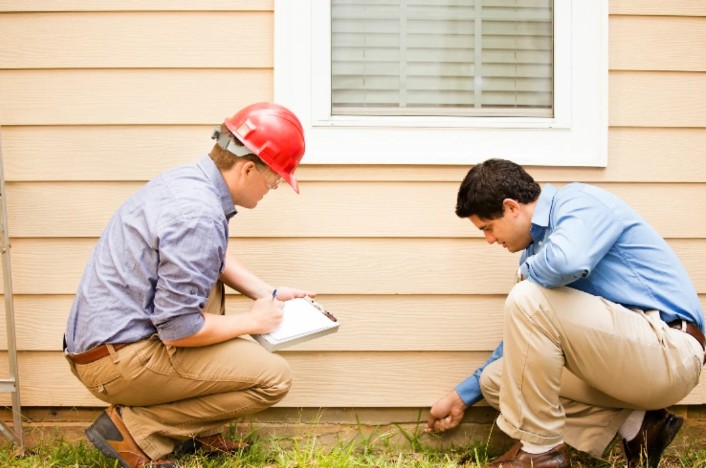As a landlord, one of your key responsibilities is to ensure the safety of your tenants, and this includes making sure that the electrical system in your rental property is safe and functional. Electrical safety inspections are a vital part of maintaining a safe living environment, and failure to pass these inspections can lead to serious consequences, including fines, tenant dissatisfaction, or even legal issues. Obtaining an Electrical Certificate after a successful inspection is essential to demonstrate that your property meets the required safety standards. Understanding how to prepare for an electrical safety inspection and what inspectors are looking for can help you avoid potential pitfalls. In this blog post, we’ll walk through essential steps to ensure your rental property passes its electrical safety inspection.
Understanding Electrical Safety Inspections
An electrical safety inspection is typically required for rental properties to ensure that all electrical systems meet local safety codes and regulations. These inspections focus on the condition of electrical components such as wiring, outlets, switches, circuit breakers, and overall electrical service. The goal is to identify any hazards or defects that could pose a risk to the safety of tenants or the property itself.
In many areas, regular electrical inspections are mandated by law to ensure the property is safe for occupancy. If you’re preparing for an inspection, it’s important to know what an inspector will check for and what you can do to address potential issues before the inspection.
Common Electrical Hazards in Rental Properties
To ensure your rental property passes its electrical safety inspection, it’s crucial to understand the most common electrical issues that could arise. Knowing what an inspector will look for will help you avoid costly surprises.
One of the most common issues is outdated wiring. In older buildings, the electrical system may not meet current safety standards. For example, older wiring materials like knob-and-tube or aluminum wiring are more prone to wear and pose a greater fire risk compared to modern copper wiring. If your property has outdated wiring, you may need to update it to comply with current safety codes.
Another common issue is overloaded circuits. Many older homes were not built to handle the high electrical demand of modern appliances and devices. If your property has too many appliances or outlets connected to a single circuit, it can cause overheating and increase the risk of electrical fires.
Faulty outlets, switches, and light fixtures are also common problems. Inspectors will check for damaged or improperly installed outlets, as well as for any exposed wires. In some cases, outlets that are not grounded properly or do not have the correct amperage can be a hazard to tenants.
GFCI (Ground Fault Circuit Interrupter) outlets are also essential in areas where water is present, such as kitchens, bathrooms, or laundry rooms. These outlets are designed to shut off power if an electrical fault is detected, preventing shock hazards. If your property lacks GFCI outlets in these critical areas, you will need to install them.
Preparing Your Property for an Electrical Safety Inspection
Now that you know some of the most common electrical hazards, it’s time to prepare your property for the inspection. By taking some proactive steps, you can make sure your property passes the inspection and avoid potential issues down the line.
Hire a Licensed Electrician
The best way to ensure your property is up to code and safe for inspection is by hiring a licensed electrician to inspect and repair any electrical issues before the official inspection. A professional will be able to identify problems that may not be obvious to an untrained eye and can help make necessary repairs or upgrades to meet current safety standards.
An electrician can check the wiring, outlets, and circuit breakers, ensuring they are in good condition and meet local codes. They can also perform any necessary repairs or upgrades, such as replacing outdated wiring or installing new GFCI outlets.
While it may feel like an unnecessary expense, having a licensed electrician perform a pre-inspection can save you time, money, and stress in the long run. Not only will this help ensure your rental property passes the inspection, but it will also make your property safer for your tenants.
Replace or Repair Outdated Electrical Components
If your rental property has old or outdated electrical components, now is the time to replace or repair them. Some of the most common issues in older properties include outdated circuit breakers, old wiring, and worn-out outlets.
Upgrading to modern circuit breakers will help prevent overloading, short circuits, and other electrical hazards. If your property still has fuse boxes instead of modern circuit breakers, this is a red flag for inspectors and could lead to a failed inspection.
Outlets that are cracked or not functioning properly should also be replaced. Pay attention to the type of outlets installed in your rental property. If there are no GFCI outlets in high-risk areas like bathrooms or kitchens, you will need to install them to pass the inspection.
Ensure Proper Grounding and Bonding
Proper grounding and bonding are critical for electrical safety. Grounding refers to the process of providing a path for excess electricity to safely flow into the earth in case of a fault. Bonding ensures that all metal parts of the electrical system are connected and will carry any stray electrical current safely to ground.
Inspectors will pay close attention to the grounding and bonding of the electrical system in your rental property. If your property has an ungrounded electrical system or improperly bonded components, you will need to bring it up to code before the inspection.
Test Smoke Detectors and Carbon Monoxide Detectors
While smoke and carbon monoxide detectors are not directly related to the electrical system, they are an important part of your property’s safety infrastructure. Many areas require these devices to be installed and functioning properly in all rental properties.
Test all smoke detectors and carbon monoxide detectors before the inspection to ensure they are working. If any detectors are missing or faulty, replace them. The inspector may check for these devices as part of the overall safety inspection.
Clean and Organize the Electrical Panel
Finally, take some time to clean and organize the electrical panel. A cluttered or disorganized panel can raise red flags for an inspector, as it may indicate poor maintenance or unsafe conditions. Ensure that all circuit breakers are labeled clearly, and there is adequate space around the panel for easy access in case of an emergency.
Conclusion
Electrical safety is a critical part of maintaining a safe and habitable rental property. By understanding what an inspector will look for and taking proactive steps to address any issues, you can ensure your property passes the electrical safety inspection with ease.
Hiring a licensed electrician, upgrading outdated components, ensuring proper grounding, and making sure all safety devices like smoke detectors are functioning are all key steps in preparing your property. Not only will this help you pass the inspection, but it will also make your rental property a safer place for your tenants, reducing the risk of electrical hazards and potential liabilities.
Taking these precautions and addressing electrical issues ahead of time can help you stay compliant with local laws, avoid expensive repairs, and maintain a positive relationship with your tenants. By making electrical safety a priority, you demonstrate your commitment to providing a safe and comfortable living environment, which is essential for long-term success as a landlord.If you want to stay updated with posts like this, please follow on DGM NEWS.





